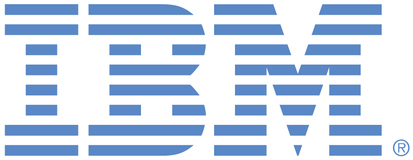
This is an IBM Automation portal for Cloud Platform products. To view all of your ideas submitted to IBM, create and manage groups of Ideas, or create an idea explicitly set to be either visible by all (public) or visible only to you and IBM (private), use the IBM Unified Ideas Portal (https://ideas.ibm.com).
Shape the future of IBM!
We invite you to shape the future of IBM, including product roadmaps, by submitting ideas that matter to you the most. Here's how it works:
Search existing ideas
Start by searching and reviewing ideas and requests to enhance a product or service. Take a look at ideas others have posted, and add a comment, vote, or subscribe to updates on them if they matter to you. If you can't find what you are looking for,
Post your ideas
Post an idea.
Get feedback from the IBM team and other customers to refine your idea.
Follow the idea through the IBM Ideas process.
Specific links you will want to bookmark for future use
Welcome to the IBM Ideas Portal (https://www.ibm.com/ideas) - Use this site to find out additional information and details about the IBM Ideas process and statuses.
IBM Unified Ideas Portal (https://ideas.ibm.com) - Use this site to view all of your ideas, create new ideas for any IBM product, or search for ideas across all of IBM.
ideasibm@us.ibm.com - Use this email to suggest enhancements to the Ideas process or request help from IBM for submitting your Ideas.

I am facing issue with EJB Timer service and not with the EJB timers. My EJB timers are running on one cluster member with my current configuration. But from the logs I see EJB Timer service is running on both the cluster members instead it should run one on one member at a time.
I do not see any difference in the EJB Timer service failover behaviour even if the new scheduler is created at cluster scope. We still have to configure the Timer service inside each cluster member, and I can see the EJB Timer service is running on both the cluster members.
If EJB Timer service is running at cluster level, it should run on one cluster member only. High Availability Manager should automatically start it on second member when first member is down. The timers will be triggered on the member on which EJB timer service is running.
Thank you for your suggestion.
The functionality you're looking for is already supported through the use of a custom scheduler configuration. By default, the EJB Timer Service is configured at the individual server level and not at the cluster level. However, by leveraging a custom scheduler configuration, it is possible to achieve timer scheduling at the cluster level, thereby addressing the requirement you've outlined.
For further reference, you may find this discussion helpful: https://stackoverflow.com/questions/73362946/was-ejb-schedule-persistent-timer-in-clustered-environment
Please let us know if you need any further assistance or if you have any further questions.
Looking forward to receiving more ideas from you in the IBM Ideas Portal